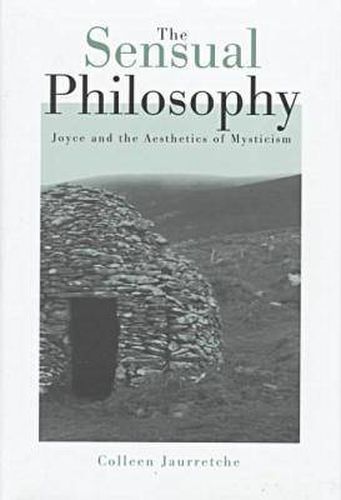Readings Newsletter
Become a Readings Member to make your shopping experience even easier.
Sign in or sign up for free!
You’re not far away from qualifying for FREE standard shipping within Australia
You’ve qualified for FREE standard shipping within Australia
The cart is loading…






The Sensual Philosophy offers a richly illuminating reading of James Joyce’s canon, placing his texts in the context of the medieval mystical tradition that had influenced and interested Joyce since his school days. In exploring Joyce’s indebtedness to the artistic and theological culture of the Middle Ages, Colleen Jaurretche also identifies the origins of modernist aesthetics in medieval forms of representation. Jaurretche follows the imprint of the negative mystical tradition-which seeks to surmount all human categories and sensations so as to encounter the divine-from its beginnings in the writings of Dionysius the Areopagite through its culmination in the sixteenth-century writings of St. John of the Cross. Joyce sees these ideas, she notes, in the intellectual tradition of late Victorian and early Modern writers, such as William Blake, Walter Pater, Francis Thompson, Gerard Manley Hopkins, Oscar Wilde, and W. B. Yeats. She traces the development of Joyce’s mystical aesthetic through a critical examination of his novels, culminating in the supreme negative mystical aestheticism of Finnegans Wake.
$9.00 standard shipping within Australia
FREE standard shipping within Australia for orders over $100.00
Express & International shipping calculated at checkout
The Sensual Philosophy offers a richly illuminating reading of James Joyce’s canon, placing his texts in the context of the medieval mystical tradition that had influenced and interested Joyce since his school days. In exploring Joyce’s indebtedness to the artistic and theological culture of the Middle Ages, Colleen Jaurretche also identifies the origins of modernist aesthetics in medieval forms of representation. Jaurretche follows the imprint of the negative mystical tradition-which seeks to surmount all human categories and sensations so as to encounter the divine-from its beginnings in the writings of Dionysius the Areopagite through its culmination in the sixteenth-century writings of St. John of the Cross. Joyce sees these ideas, she notes, in the intellectual tradition of late Victorian and early Modern writers, such as William Blake, Walter Pater, Francis Thompson, Gerard Manley Hopkins, Oscar Wilde, and W. B. Yeats. She traces the development of Joyce’s mystical aesthetic through a critical examination of his novels, culminating in the supreme negative mystical aestheticism of Finnegans Wake.